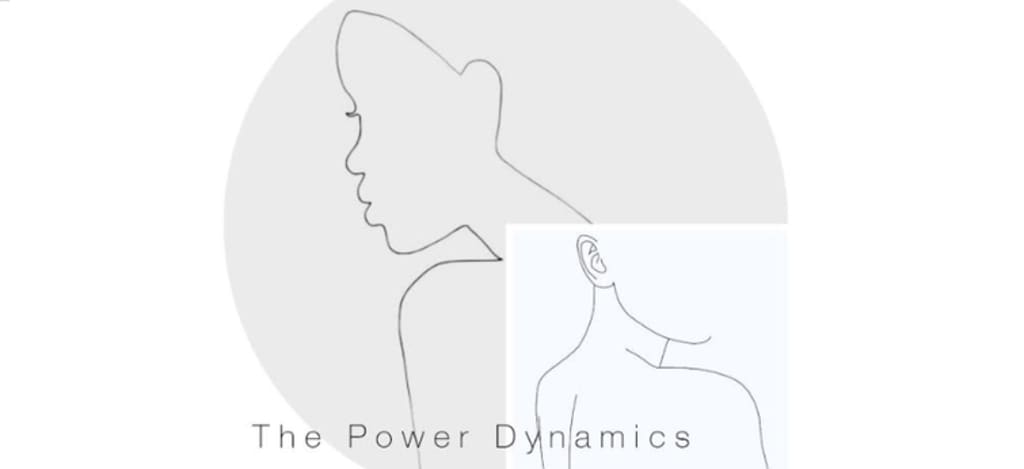The Power Dynamics
Between the Women, and the Women Who Love the Men More.

There are women who love the women, but love the men more. They seem consoling and balletic, but are mask-less spectators proffering a speech about a pseudo notion of love towards women, while honoring men who cross-question the necessities of the same women they will forever claim they love. These women will conceal their emotions indicating any support for the woman with a past and a confession. Her confessions lie within the constructs of being believed and being somewhat forgiven by the women who needed her to retire from stories of abuse.
Ridicule and judgment will surround her life and the continuance of her career by grudging self-constituted pundits, who prey on the hero they secretly long to be. It’s easier to be a bystander who avoids the repercussions of a battle the confident one fights to dismantle brick by brick. It’s easier to believe that even words have a way with words, because the tune to: believe her seems to be “overplayed” or “overused,” when it defies the type of problem accepted as a culture we refuse to refine. It’s hard for the women who love the men to believe that there’s more than just a few victims who refuse to be held hostage as victims of their past, and an adolescent “remember the time when” anecdote for the memories of the men who love themselves. It’s hard to believe that a majority of a somewhat progressive society has lost count and decided that it was better to call her story a lie and a fabrication solely for civility.
For the women who love the men, you hold a lot of power. A chapter for history to come back at us and to see that we were slow. You hold the single vote that quells her. Every single memory of a testimony has become a part of us as you distance yourself for a partnership by someone of a particular stature to later on affirm it's just business. We remained inescapable, certain, aware, a menace to the stoic argus-eyed critics. A distraction and interruption to the regular flow of society. But you still hold a lot of power that enables indiscretion. In fact, you hold 53 percent of the power that allows a multitude of passes for the men with many faces ensuring us that your blind spot is a choice.
In the 2016 presidential elections, 53 percent of white women voted for a man who will never be interested in being their president. The business mentality of this president, has no business in the lives and issues of women of colour, lesbians or trans-gender individuals because it requires effort and the willingness to empathize; to get out of one’s head, one’s common known periphery and to learn to unlearn what has shaped an individual’s narrow-mind. The types of women who choose to see the problem, stand next to the problem, and refuse to make the necessary changes of eradicating them. It is as simple as using the voice that was used to elect an unrelated 'mastermind' who made his voters justify their white supremacy, racism, their sexism, their homophobia, their animosity towards diverse religions, and their ignorance towards feminism and the different waves, theories and intricacies that fall under this umbrella.
The Women’s Liberation is questionable
White women have failed black women since the beginning of feminism. In 1971 Toni Morrison wrote the article: What the Black Woman thinks about Women’s Lib, explaining the feelings of the women’s liberation movement through the perspective of a black woman. She wrote: “WHAT do black women feel about Women's Lib? Distrust. It is white, therefore suspect.” It’s funny and true and disappointing because black women had to re-name a name, an idea; a movement for the world to acknowledge the presence of women who have fought for the existence of this name, feminism, which took forever to see its relevance. Feminism in itself did not speak for the most vulnerable but for the better displayed pseudo intellectual. An elite organization of some sort. It failed to include the narrative of women of colour. Black feminism highlighted the polarity between white women and how the view of each other’s craft (ideologies, beliefs, and experiences) was more eminent than the race battles between black women and white men. Because in the words of Toni, “racism was not confined to white men.”
The problem that white women had and continue to have about equality, in the most basic form, is this one dimensional notion in which, if they need to be seen as equals, they need to be seen as equal to men. In their mind, conversations about equality has to be distinguished between them and a men, for the ‘betterment’ of all, and not them and other woman who are more marginalized. They don't see the power dynamics that play within the woman to woman complex relationship. This touches on Toni Morrison’s theory of the female-mind controlled by male type thinking. In other words, perhaps the domino effects of bad habits.
But here we are, 48 years later and semantics has not shifted in a way that is agreeable to most. Take for example the #metoo movement. Tarana Burke the founder and creator of the Me Too Movement believes that after this hash-tag became a viral moment, it lost its way of its pure accord. It went from solely being about survivors and being a part of a community that shares the voices of women who are reminded to get up everyday; who are told that they are not alone, and who are believed, to focusing on a standard narrative, an idée fixe that epitomizes on gender wars, famous women, cisgender, or white. The story is deeper than a standard opinion. It’s about saying, “I have a story to tell, and I am looking for a space to have solid conversations.” So for the women who love the women but love the men more, one can’t ‘retire’ from stories of abuse but embrace the changes that has made her stronger. She will forever use her voice even if her story may not fit a common equation. Even if her voice shakes.
About the Creator
Jenny Meya
I am an artist, a creative strategist and a storyteller. I am learning to live in my purpose by advocating for true authentic storytelling.
Instagram: @rationalrebel_






Comments
There are no comments for this story
Be the first to respond and start the conversation.